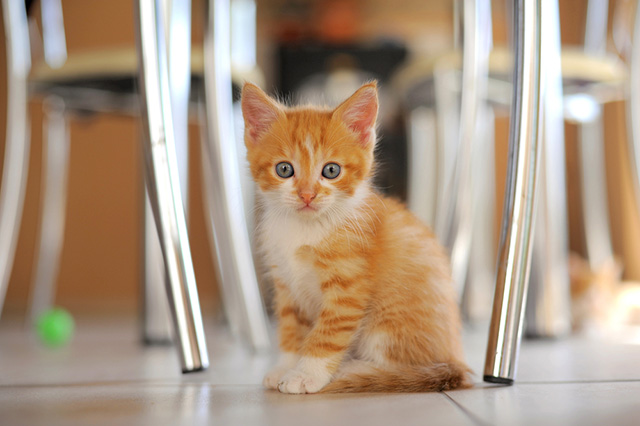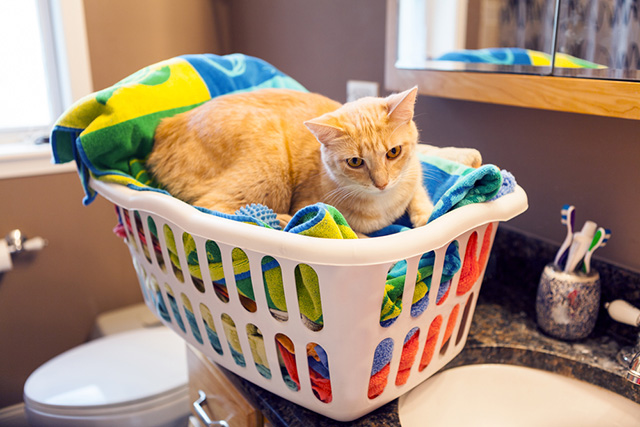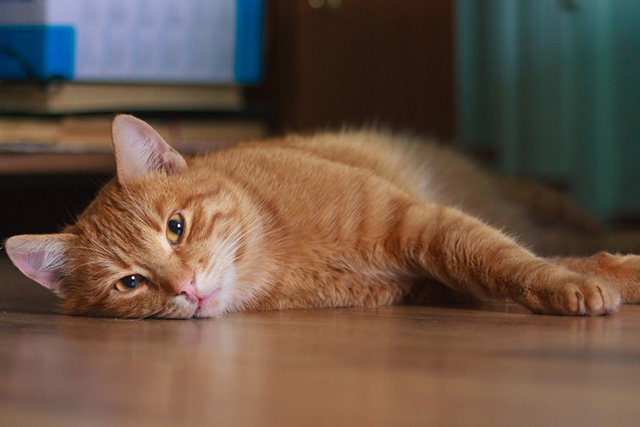Pet-proofing your home
Just as parents ‘childproof” their home, so cat owners should ‘pet-proof’ theirs. Four-legged members of the family are naturally curious and love to explore their environment with their paws, claws and mouths. But they can’t know what is dangerous and what is not… so it’s up to you to make your home a safe haven. These tips can help ensure that your cat enjoys a long, happy and accident-free life at home.

How to cat-proof your house
- Screen windows to guard against falls.
- Don’t let young cats out on balconies, upper porches or high decks.
- Many house plants, including dieffenbachia, elephant ear, spider plants and more are poisonous if eaten. Remove them or put them out of reach in hanging baskets.
- Kittens love to chew when they’re teething, so unplug, remove or cover electrical cords.
- Don’t leave a room where a fire is lit or a heater is being used unattended.
- Plastic bags may be fun to play with, but they can cause suffocation.
- Don’t leave small, sharp, easily swallowed objects lying around.
- Cotton thread especially attached to a needle and also wool are particular hazards to cats because backward pointing spines in their tongue tend to encourage such items to be swallowed if taken into the mouth.
- Never leave ovens or irons on unattended.
- Dangerous household chemicals such as bleach and ammonia should be stored out of your catÕs reach.
- Close washer and dryer doors – your cat might climb in and become trapped.
- Keep toilet lids down – kittens can drown if they fall in.
Cat-proofing your garage
- Cats enjoy naps near a warm engine so, before you drive off, honk your horn and make sure your pet is not under or near the car.
- Cats like the smell and taste of antifreeze but ingestion is likely to prove fatal. Tightly cover containers and wipe up any spills.
- Paint, fuel and other dangerous chemicals should be stored out of reach.
Cat-proofing your garden
- Some outdoor plants, like ivy and oleander, can be poisonous to cats.
- Keep cats away from lawns and gardens treated with chemicals.
- Store garden tools and chemicals securely. Keep garden sheds locked.
- Cover pools and ponds – your cat might fall in and not be able to get out.
Avoiding cat-astrophes
- Many objects used as cat toys – wool, string, rubber bands, aluminium foil – can be extremely harmful if swallowed.
- Cats love to sleep in warm, dark places, so keep drawers and cupboards closed.
- A cat looks adorable with a ribbon tied around its neck, but it could get caught and choke your pet. Make sure collars are not too tight or two loose- both can be dangerous. One finger should fit under the collar comfortably. If in doubt ask your vet.

Keeping your cat safe at Chirstmas time
- Tinsel and icicles, Christmas tree lights and glass ornaments will be sure to tempt your catÕs curiosity – but all could be harmful if chewed or swallowed.
- Poinsettia, holly and mistletoe are poisonous to your cat.

